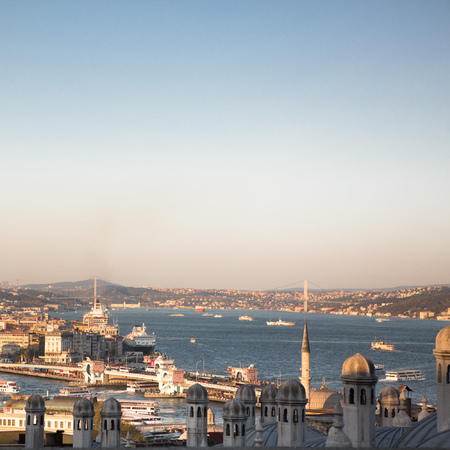Cat Fight
In the end, Ankara decided to use the recent NATO summit in Lisbon not as an opportunity to make a De Gaulle-style break with the alliance, but rather as a chance to reaffirm Turkey’s commitment to the concept of collective security and to fend off those who were looking for another piece of evidence to prove the alleged Turkish drift eastward.
The Turkish government was able to bring home the goods on the issue it fought hardest on, which was to not name any country (i.e. Iran) as the reason behind the new NATO missile defense shield program that was agreed upon at the summit. On the other hand, as the Wall Street Journal reported, “Most of a series of other demands Turkey had made in the weeks leading up to the meeting were either dropped or, as in the case of a demand for the control center to be located in Turkey, pushed into the future. Turkish President Abdullah Gul didn’t press these issues on Friday, say people attending the summit.”
Without any drama or showdowns at the summit itself, things got more interesting once it ended. As Burak Bekdil writes in a typically acerbic column in Today’s Hurriyet Daily News:
“In France, we call a cat a cat. We all know we are talking about Iran,” President Nicholas Sarkozy said after the NATO summit in Lisbon. Apparently, the French president dislikes verbal contortions surrounding the proposed missile defense architecture. “We, too, call a cat a cat,” Prime Minister Recep Tayyip Erdoğan replied in Turkey, while vigorously avoiding calling a cat a cat.
Meanwhile, President Abdullah Gül was proud because Turkey’s efforts to not call a cat a cat had succeeded at the Lisbon summit. Now we have a cat at our east door, but neither we nor our NATO allies would call it a cat. All the same, Mssrs. Sarkozy and Erdoğan claim that they would call a cat a cat.
In September, NATO’s Secretary General Anders Fogh Rasmussen had also called a cat a cat. The missile shield system, Mr. Rasmussen said, would be against possible attacks from rogue states. It was apparent that his definition of rogue states did not imply Singapore or New Zealand. The secretary general named Iran’s nuclear program as one of the reasons justifying the missile shield. The cat?!
I think the question is not so much Turkey refusing to “call a cat a cat,” but rather how it perceives the feline. To some of Ankara’s allies (most crucially, the U.S.), the cat is a growling one that often tries to claw those reaching out to stroke it. To Turkey, on the other hand, the cat is a potentially cuddly stray that simply needs to be brought in from the cold (perhaps, as Semih Idiz points out in a recent column, that’s why one of the first things Turkish Foreign Minister Ahmet Davutoglu did after the summit was call his Iranian counterpart to update him on developments).
At the end of the day, though, by joining the missile shield agreement, it appears that Ankara is not taking any chances one way or another. In a good analysis of what the Lisbon summit means for Turkey and transtlantic relations, the German Marshall Fund’s Ian Lesser points out that:
….the approach to ballistic missile defense architecture, agreed in principle in Lisbon, suits Turkish security interests to a surprising degree. Turkey’s close political and commercial relations with Tehran, and Ankara’s “no” vote on UN Security Council sanctions, contributed to an atmo- sphere of friction with Western partners on Iran policy. Yet, beneath the differences on Iran diplomacy, Turkey shares — or should share — some concerns about Iran’s nuclear and missile programs. In a technical sense, Turkey is the most exposed member of the alliance when it comes to the growing reach of ballistic missile systems deployed or under development in the Middle East. Ankara may wish to keep an open line with Tehran, but the defense of Turkish territory, including key population centers, still matters.
Lesser’s analysis paints a fairly positive picture of the post-summit Turkey-NATO/western alliance dynamic, writing:
….the Lisbon experience suggests that some aspects of Turkish foreign policy remain cautious and traditional, and the NATO connection still matters when it comes to working with Ankara.
On the other hand, in his conclusion, Lesser looks ahead, offering this thought:
The dynamics in Lisbon do not reverse recent trends in Turkish strategy, nor are they irrelevant to future prospects. For the United States and Europe, the Lisbon summit underscores the reality that Turkey’s foreign and security policy is increasingly diverse, in character as well as direction.
Clearly, many more opportunities to see who calls a cat a cat await Turkey and NATO down the road.
via Istanbul Calling: Cat Fight.
